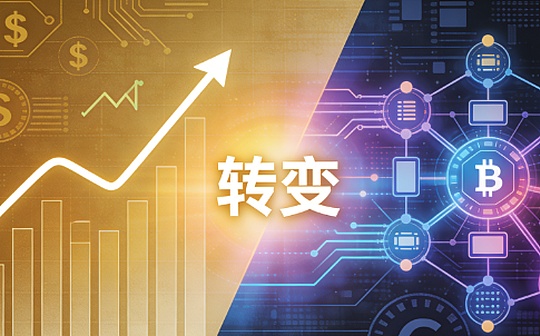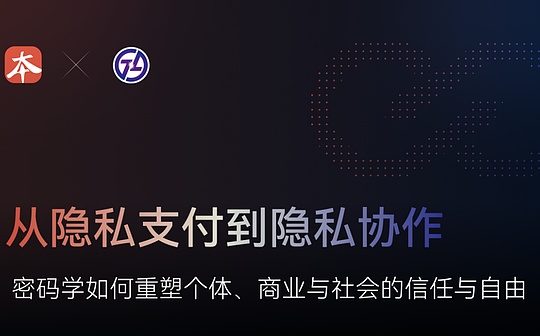
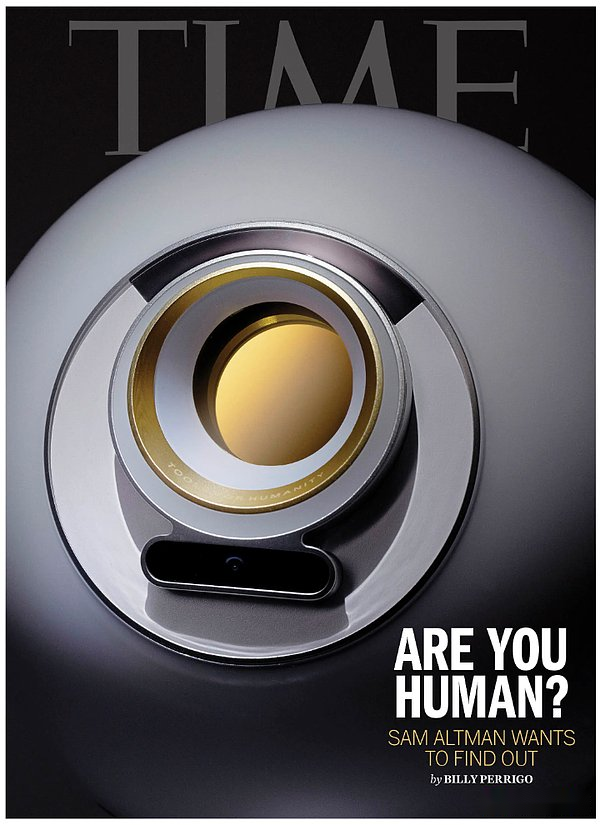 Source: Billy Perrigo, Times; Translation: Bitchain Vision xiaozou
Source: Billy Perrigo, Times; Translation: Bitchain Vision xiaozou
Sam Altman once again shows the future to the world.The OpenAI CEO stands on an inconspicuous stage in San Francisco, ready to reveal his next move to a focused audience.”In the age of universal AI, we need some way to identify and verify humans,” Ultraman explained. “We want to make sure that humans are always unique and core existences.”
The solution was faintly emerging behind him—a white sphere the size of a beach ball with a camera embedded in the center.Its manufacturer “Tools for Humanity” calls this mysterious device “Orb”.As you stare at the center of this plastic and silicone sphere, it scans the iris’ unique ravine and ciliary area features.In a few seconds, your mobile app will receive an immutable human proof: an iris encoding composed of 12,800-bit binary numbers.Meanwhile, the Worldcoin cryptocurrency worth about $42 will be transferred to your digital wallet—a reward for becoming a “verified human”.
Ultraman co-founded Tools for Humanity in 2019, viewing it as one of the enterprise matrix reshaping the world.He inferred that when the technology developed by OpenAI breaks through a certain intelligence threshold, the Internet will end the old era and open a new era – by which time AI will be so realistic that it is impossible to tell whether the content of the Internet comes from real humans.Ultraman foresees that at that time we need a new network infrastructure: establishing a human verification layer for the Internet to distinguish real humans from the surge in robots and AI “agents”.
Therefore, Tools for Humanity set out to build a global “proof of humanity” network.The project plans to complete 50 million people verification by the end of 2025, with the ultimate goal being to get everyone on the planet to complete registration.The free cryptocurrency is both an incentive to attract users to register and an entrance to the company’s largest financial network – they predict that “double-digit percentage of global economic traffic” will be circulated through the network in the future.Even for Ultraman, these goals are bold.”If successful, this will become a fundamental part of the world’s infrastructure,” Ultraman said in an interview with Time magazine through in-car videos a few days before his keynote speech on April 30.
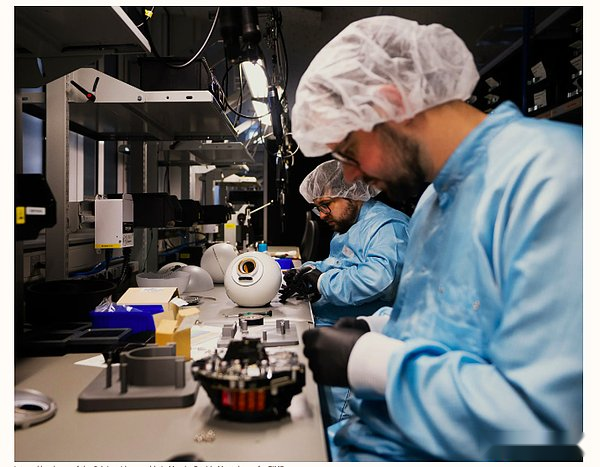
The project aims to solve a problem with Ultraman’s personal involvement in manufacturing.He and other technology leaders predict that in the near future, advanced AI will have the ability to act independently: not only respond to human instructions, but also take action independently in the real world.This will give birth to AI colleagues who can directly work on problems, AI tutors who adjust teaching methods according to students’ preferences, and even AI doctors who can diagnose routine cases and deal with schedules.Its venture capital supporters predict that the arrival of these virtual agents will greatly increase productivity and open a new era of material abundance.
But AI agents will also have a chain impact on human network experience.”As AI systems become increasingly indistinguishable from humans, websites may face difficult trade-offs,” a recent paper by researchers at 25 universities, nonprofits and tech companies, including OpenAI, notes. “Digital institutions are likely to be underprepared for some situations, such as when AI agents, including agents manipulated by malicious actors, flood other network activities.” On social platforms such as X and Facebook, AI content generated by robot accounts has been viewed billions of times.In April, the Wikipedia Operations Foundation disclosed that AI robots crawling website content has caused the encyclopedia operation costs to surge to unsustainable levels.In the late of the same month, researchers from the University of Zurich found that in the Reddit Forum/r/ChangeMyView section, AI-generated comments can be at most six times the success rate of human comments.
The emergence of AI agents will not only threaten our ability to distinguish real content from AI content on the Internet, but will also impact the core business model of the Internet – online advertising, which is based on the basic assumption that “advertising audience is human”.”The internet will undergo drastic changes in the next 12 to 24 months,” said Alex Blania, CEO of Tools for Humanity. “We must succeed, otherwise the consequences will be unpredictable.”
For four years, Blanya’s team has been testing Orb hardware devices overseas.Now that the US market layout has officially started – in the next 12 months, 7,500 Orbs will be located in gas stations, convenience stores and brand flagship stores in dozens of American cities, including Los Angeles, Austin and Miami.The project founders and supporters look forward to the launch of a new stage of growth in this first American show. The title of the San Francisco keynote speech “Finally Arrived” implies this.
But public enthusiasm doesn’t seem to match the passionate brand vision.Tools for Humanity has only “verified” 12 million humans since mid-2023, and Blanya admits that this progress is far behind the plan.Currently, there are few online platforms that support the so-called “World ID” issued by Orb. Apart from free cryptocurrencies, it is almost impossible to attract users to submit biometric data.Even Ultraman doubted the project prospects: “It may become mainstream in a few years, or it may always be used only by niche people with specific ways of thinking.”

However, as AI swept the Internet, the creator of this strange hardware is betting that humans around the world will soon be actively or passively visit Orb.They predict that the biometrics they generate will become a new type of digital passport, and without it, you may be turned away from the Internet in the future – from dating software to government services.Ideally, World ID may become a privacy protection solution to help the Internet resist the torrent of AI-driven false information; it may also realize the national basic income policy that Ultraman once promoted when AI automation reshapes the global economy.To explore the significance of this technology, the author reports across three continents, interviewed 10 Tools for Humanity executives and investors, reviewed hundreds of pages of company documents, and completed “human verification” himself.
“The Internet will inevitably need some kind of human proof system in the near future,” said Divya Siddarth, founder of the nonprofit “Collective Intelligence Project”, “a system that will be centralized – “a major security risk that facilitates mass surveillance” or as Orb claims to be able to protect privacy.There are still doubts about Tools for Humanity’s corporate structure, its binding relationship with volatile cryptocurrencies, and how power will be concentrated in the hands of the owner after success.But it is also one of the few attempts to address this widely regarded increasingly urgent problem.”There are indeed some problems with World ID,” Sidaz commented, “but the Internet cannot always maintain the status quo. An attempt to move in this direction is necessary.”
In March, I met Blanya at Tools for Humanity’s San Francisco headquarters, where the large screens show the number of weekly “Orb verifications” in each country.A few days ago, the CEO had just attended a one-million-dollar dinner at Mar-a-Lago to meet with President Trump.He believes it is Trump’s policy to relax cryptocurrency regulation that clears the obstacles for companies to enter the U.S. market.”Considering that Sam (Ultraman) is a highly-watched target,” Blanya explained, “we decided to let other companies deal with regulatory disputes first and then enter the U.S. market after the situation is clear.”
Blanya, in her childhood, was unique when she was in Germany.”Other kids were either addicted to drinking or were passionate about parties, and I was always fiddling with things that could explode,” he recalls.While studying for his master’s degree at Caltech, he often studied the blogs of entrepreneurial masters such as Paul Graham and Altman throughout the night.In 2019, Blania received an email from entrepreneur Max Novendstern, who was discussing with Ultraman about the idea of building a global cryptocurrency network, and they were looking for technical talents to advance the project.
While enjoying the cappuccino, Ultraman explains three things he is sure of.First, AI beyond human intelligence is not only possible, but inevitable—this will soon lead to the inability to assume that everything you see on the internet is from human hands.Second, cryptocurrencies and other decentralized technologies will become huge forces that change the world.Third, scale adoption is crucial to the value of any encrypted network.
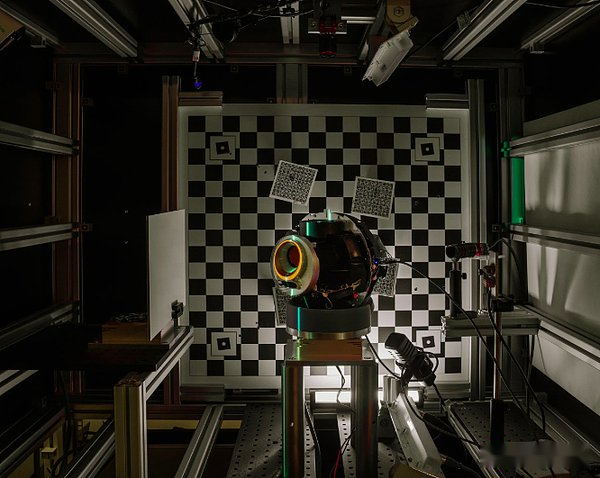
This project, originally called Worldcoin, aims to integrate these three insights.Ultraman draws experience from PayPal (which was co-founded with mentor Peter Thiel).PayPal spent less than $10 million in its initial financing to develop applications, but invested about $70 million in recommendation programs—new users and referees each received a $10 credit line.This recommendation program helps PayPal become the leading payment platform.Ultraman believes that similar strategies can also push Worldcoin to the same heights.He plans to create a new type of cryptocurrency as a reward for user registration.In theory, the more people join the system, the higher the value of the token will be.
Since 2019, the project has raised $244 million from investors such as Coinbase and venture capital firm Andreessen Horowitz.The funds are used to pay for the $50 million design cost of Orb equipment and to maintain the software it needs to run.However, the total market value of all existing Worldcoins is much higher – about $1.2 billion.This number is somewhat misleading: most of the tokens are not yet available, and Worldcoin prices fluctuate dramatically.Nevertheless, this allows companies to reward registered users at zero cost.For investors, the main attraction is the appreciation potential of cryptocurrencies.About 75% of Worldcoin reservations are reserved for users to receive or as a recommendation reward when registering, and the remaining 25% are allocated by Tools for Humanity supporters and employees (including Blanya and Ultraman).”I’m looking forward to making a lot of money,” said Brania.
From the beginning, Ultraman was thinking about the possible consequences of the AI revolution he intended to launch.(On May 21, he announced plans to work with former Apple’s famous designer Joni Ivey to develop new AI personal devices.) He inferred that when advanced AI can do most jobs more efficiently than humans, unemployment waves and economic disorders will follow, and some form of wealth redistribution may be imperative.In 2016, he partially funded a basic income study, paying $1,000 a month to low-income groups in Illinois and Texas.But at that time, there was no unified financial system that could distribute funds to everyone around the world, nor could it prevent individuals from repeatedly claiming shares, and it was even more difficult to identify advanced AI that pretended to be humans to steal funds.In 2023, Tools for Humanity proposed to use the network to redistribute profits from AI laboratories that automate human labor.”As AI grows,” the company statement noted, “the fair distribution of access and part of the value created through universal basic income will play an increasingly critical role in curbing the concentration of economic power.”
Brania was moved by this idea and agreed to join the project as a co-founder.”Most people think we are either stupid or mentally ill, including Silicon Valley investors,” Blanya recalls.This view did not change until ChatGPT was released in 2022 – the product made OpenAI among the world’s most famous technology companies and triggered a bull market.”The outside world suddenly began to understand our vision,” said Brania, speaking of building a global “Human Proof” network. “You must imagine a world where highly intelligent systems travel through the Internet, each with different goals and intentions, and humans are completely unable to tell what they are facing.”
After the interview, the PR person in charge led me to a circular wooden device, with eight Orb devices standing opposite each other, and the scene was like an Apple store and a religious altar.”Do you want to experience verification?” she asked.For research purposes, I temporarily put aside my concerns and download the World App and follow the instructions: show the QR code to Orb and stare at the device center.After about one minute, the phone vibrating display confirms: I have obtained the exclusive World ID and several Worldcoins.

When I stare at Orb, multiple complex programs start synchronously.The neural network confirms that I am a living person through multiple sensors such as infrared cameras and thermometers, while the telephoto lens focuses on the iris and captures the biological characteristics that distinguish me from other humans on Earth.The device then converts the image into an iris encoding—a set of abstract numbers representing my unique biometric features.Orb uses encrypted data comparison technology (no need to expose original information) to verify whether the encoding is duplicated with existing records.Before deleting the data, the system converts my iris code into several derivative codes (no derivative code can inversely deduce the original data), destroys the unique decryption key after encryption, and distributes these codes to different security servers so that the future user’s iris code can be uniquely compared with mine.If you use World ID to log in to the website, the other party can only confirm that I am a human and cannot obtain other information.Because Orb adopts an open source design, external experts can review the code to verify its privacy commitments.”Before joining, I did a comprehensive ‘colonoscopy’ of the technology,” said Trevor Traina, a Trump donor and former U.S. ambassador to Austria, who is currently the chief commercial officer of Tools for Humanity. “This is the most privacy-protecting technology on the planet.”
Just a few weeks later, when I was studying the data deletion mechanism, I found that the company’s privacy commitment was actually based on some kind of “dissues”.Tools for Humanity claims that the derived iris encoding has been “substantively anonymized” biometric data.If deletion is required, the company will only clear the original code stored on the mobile phone and retain the derivative codes – they believe that these derivative codes are no longer personal data.But if you delete the data and use Orb again, the system can still identify my unique identity through these derivative codes.Once you stare at Orb, your identity fragment will remain in the system forever.
When I called Tools for Humanity Chief Privacy Officer Damien Kieran for explanation, he admitted that if users are allowed to completely delete data, the core premise of “one person, one ID” would collapse.The banned user may delete the data and re-register the World ID, or receive Worldcoin tokens for sale, and then delete the data and cash out repeatedly.
This set of rhetoric did not convince Germany’s EU regulators.The latter recently ruled that Orb had a “fundamental data protection problem” and asked the company to allow European users to completely delete all information, including anonymous data (Tools for Humanity has appealed and regulators are reevaluating the decision).”Same as other technical services, users cannot delete non-personal data,” Kieran emphasized in the statement. “If the deletion of these anonymous data that cannot be associated with individuals is allowed, criminals will bypass the security line built by World ID for all humanity.”
On a warm afternoon this spring, I climbed into a room upstairs in a restaurant in the remote suburbs of Seoul.Five Korean elderly people are clicking on their phones, waiting for the “verification” of the two Orbs in the center of the room.”We really can’t tell the difference between AI and humans now,” the staff wearing a company T-shirt pointed to the sphere device and explained in Korean. “We need a way to prove that we are humans, not AI. What should we do? Humans have iris, but AI doesn’t.”
The staff guided an old woman to Orb.After the device made a “beep”, a female voice came out and said in English: “Open your eyes.”The old woman stared at the camera and checked her phone a few seconds later and found that the Worldcoin worth 75,000 won (about $54) had arrived in the digital wallet.The app pops up a congratulatory message: You have become a verified human.
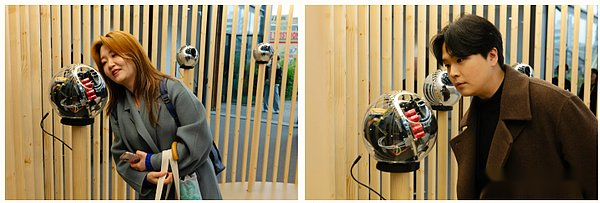
Since 2023, South Korea has deployed more than 20 Orb equipment and completed verification of about 55,000 people.Tools for Humanity is now increasing its promotion in South Korea.At a press conference held by a traditional Korean ok in downtown Seoul, company executives announced that they would soon deploy 250 Orbs nationwide—the goal is to complete verification of 1 million Koreans in the next 12 months.South Korea has a high penetration rate of smartphones, widespread use of cryptocurrency and AI, complete network coverage, and per capita income level make free Worldcoin still attractive. These conditions make it an ideal test site for the company’s global expansion plan.But the promotion seems to have a bad start.In a retail store in downtown Seoul, Tools for Humanity built eight Orb-mounted wooden devices. Most of the passers-by showed confusion and rarely tried it on their own initiative.Most of the participants are cryptocurrency enthusiasts who come here specially, and they are more about trying out the new things rather than free tokens.
The next day, I came to a cafe in downtown Seoul, with silver Orb equipment placed in a low-key corner.A 20-year-old Chinese student started a conversation with a barista who served as an operator.He was invited by a friend – the other party said that after registering, both parties could receive free cryptocurrencies.The barista quickly guided him through the process: he agreed directly without reading the privacy terms, opened his eyes wide at Orb, and passed the verification soon.”No one explained the privacy policy,” he said as he left, “I came for the money.”
When Ultraman’s vehicle was traveling through the streets of San Francisco, I mentioned his point in 2019: AI will weaken online trust.Surprisingly, he denied this statement.”I’m more concerned with what value we can create than what harm we can prevent,” he said. “The point is not to ‘avoid robots’, but to create unique value for humans.”
This answer may reflect his character’s transformation.Now as the chief public spokesperson for a company with a valuation of $300 billion, Ultraman is vigorously promoting the transformational application of AI agents.He and other supporters believe that the rise of agents will improve quality of life—like having an assistant who can answer urgent questions, handle trivia and help you master new skills at any time.This optimistic vision is likely to come true, but it is not very consistent with the “AI triggers information disaster” predicted by Tools for Humanity when it was founded.
Ultraman didn’t care about the question “What kind of influence will he and investors gain after the vision is realized?”He speculated that most holders would sell their tokens too early.”It’s a bad situation for early teams to control protocols,” he said. “This is exactly the value of the decentralization commitment.” The World protocol that Ultraman refers to is the underlying technology that Orb devices, Worldcoin and World ID rely on.Although developed by Tools for Humanity, the company promises to step-by-step handover control to users — a process they say prevents power from being concentrated in the hands of a few executives or investors.Tools for Humanity will remain for-profit and charge fees to platforms that use World ID, but other companies can compete for users by developing alternative applications and even competitor Orb.
The plan draws on the core philosophy of the crypto ecosystem from the late 2010s to the early 2020s—the preachers of emerging blockchain technology at that time believed that centralization of power (especially the monopoly of the so-called “Web 2.0″ tech giants) was the root of many ills of the modern Internet.Just as decentralized cryptocurrencies can reform financial systems controlled by economic elites, it is also feasible to establish decentralized organizations operated by members rather than CEOs.However, how this system actually works is still unclear.”Build a community autonomy system,” Tools for Humanity admitted in its 2023 white paper, “may be the most challenging part of the entire project.”
Ultraman has a behavioral pattern of “proposing idealized commitments first and then gradually correcting”.In 2015, he founded the non-profit organization OpenAI, with the purpose of safely developing universal artificial intelligence that benefits all mankind.To raise funds, OpenAI reorganized into a for-profit company in 2019, but control remains on the non-profit board.Last year, Ultraman proposed a restructuring plan again, which would weaken the board of directors’ control and allow more profits to flow to shareholders.When I questioned why the public wanted to believe Tools for Humanity would voluntarily give up power, he responded: “The agreement will continue to advance decentralization, and the value will exist in the network, which is jointly owned and governed by the public.”
Recently, Ultraman has rarely mentioned the concept of national basic income and instead explored an alternative that he called “national basic computing power”.He seems to suggest that instead of letting AI companies distribute profits, it is better to let people around the world have fair access to super AI.Brania revealed that she had decided to “stop discussing universal basic income” within Tools for Humanity.”National Basic Income is just one of the potential options,” he said. “Enable people to get exposure to the latest AI models and accelerate learning is another path.” Ultraman admitted: “I’m still not sure about the correct answer. But the existing resource allocation mechanism must be improved.”
Ultraman looked angry when I asked “why the public should trust him.””I understand that you are disgusted with AI, it doesn’t matter,” he said. “If you have to emphasize the disadvantages of AI – such as the appearance of a large number of realistic AI systems that disguise humans, we need to distinguish the authenticity – that can be called the disadvantages of AI, but that’s not what I want to say.”
The wording “human authorization” hints at the tension between World ID and the OpenAI AI agent program.If the Internet needs World ID to use most services in the future, it may hinder the AI agents developed by companies such as OpenAI from doing their jobs.To this end, Tools for Humanity is building an agent delegation system. According to Chief Product Officer Tiago Sada, users can authorize World ID to the agent to allow them to operate online.”The entire system we designed can be easily entrusted to the agent,” Sada said.Although this measure can hold humans accountable for AI behavior, it shows that Tools for Humanity’s mission may be shifting from simply “verifying humans” to becoming an infrastructure for “AI agents to spread by humans authorized by humans.”World ID cannot distinguish whether the content is generated by AI or humans, and can only display the attributes of the published account.Even if everyone has World ID, cyberspace may still be full of AI-generated graphics, text, videos and videos.
When I bid farewell to Ultraman, I felt conflicted about this project.If AI agents will reshape the Internet, some kind of human proof system is indeed necessary.But if Orb becomes a network infrastructure, Ultraman, a vested stakeholder of AI content flooding, will also control the main defense mechanisms against AI flooding.People may have to join the network in order to use social media or online services.
This reminds me of the scenes I witnessed in Seoul.In a room upstairs of the restaurant, 75-year-old Zhao Zhengyan (sound) watched her friend complete the Orb verification.Although she was invited to participate, she chose to refuse – the reward was not enough to make her hand over some of her identity characteristics.”The iris is unique, and we don’t know how it will be used,” she said. “Seeing that machine forced me to think: Are we going to become machines now rather than humans? Everything is changing, and we don’t know what will happen in the end.”

